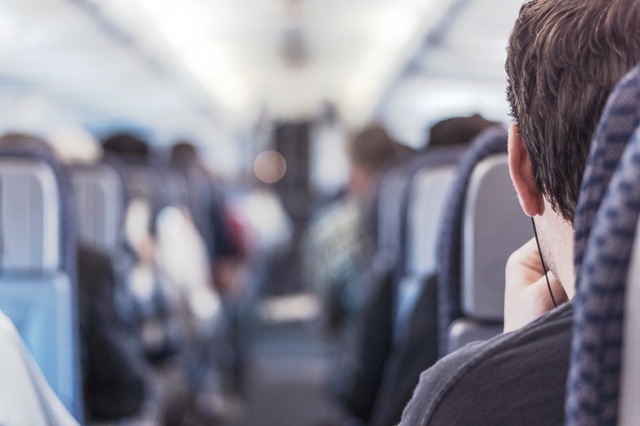Have you ever walked through the First Class section on an airplane only to get to your Coach seat feeling uncomfortable? Does the sight of First Class passengers sipping champagne make you instantly want to punch the wall? You are probably not the only one.
The Walk of Shame
That stroll through the “good seats” is redefining the term ‘walk of shame.’ You’re not alone in feeling ashamed when you have to walk through that First Class cabin to your own Economy class section to face a 6 hour hell with no leg room, hot towels, or dignity.
It is now SCIENTIFIC FACT that incidents of air rage in the Economy cabin are significantly higher than in the First Class cabin.
You’re Not Alone
Katherine DeCelles, Ph.D., an associate professor of organizational behavior at the University of Toronto, showed that incidents of air rage in Economy were significantly higher when planes had a First Class cabin.
“The modern airplane is a social microcosm of class-based society, the increasing incidence of ‘air rage’ can be understood through the lens of inequality,” writes DeCelles and her co-author Michael Norton of Harvard Business School in the study.
The Specifics
In the report, their models showed that rage was nearly four times as likely on flights with a First Class cabin than on those without. Controlling for factors like seat pitch and width, the researchers concluded that having a First Class cabin increased the odds of passenger problems amounting to an additional 9.5-hour delay.
1,500-4,000 incidents of air rage that occurred on 1.5 million flights were studied. They found that not only are episodes of air rage increasing, but that they are much more likely to happen when there is physical and situational inequality on the plane.
First Class Rage
Interestingly, the researchers found that the First Class passengers were affected by visible inequality as well. When all passengers boarded through the front of the plane via first class, incidents of air rage in the First Class cabin increased by a factor of nearly 12%.
Other Contributing Factors
However, there are other factors that could contribute to this phenomenon: longer flights or delayed flights that happen in larger planes with multiple cabins. This could potentially lengthen the boarding time which all contribute to a culture more likely to act out and misbehave.

![5 Reasons You Should Travel Alone Airplane [image source: chau nguyen/ http://thedevilhatessweatpants.blogspot.com.au ], crowd ink, crowdink, crowdink.com, crowdink.com.au](https://crowdink.com/wp-content/uploads/2016/08/Chau-airplane-218x150.jpg)




























![5 Reasons You Should Travel Alone Airplane [image source: chau nguyen/ http://thedevilhatessweatpants.blogspot.com.au ], crowd ink, crowdink, crowdink.com, crowdink.com.au](https://crowdink.com/wp-content/uploads/2016/08/Chau-airplane-100x70.jpg)


